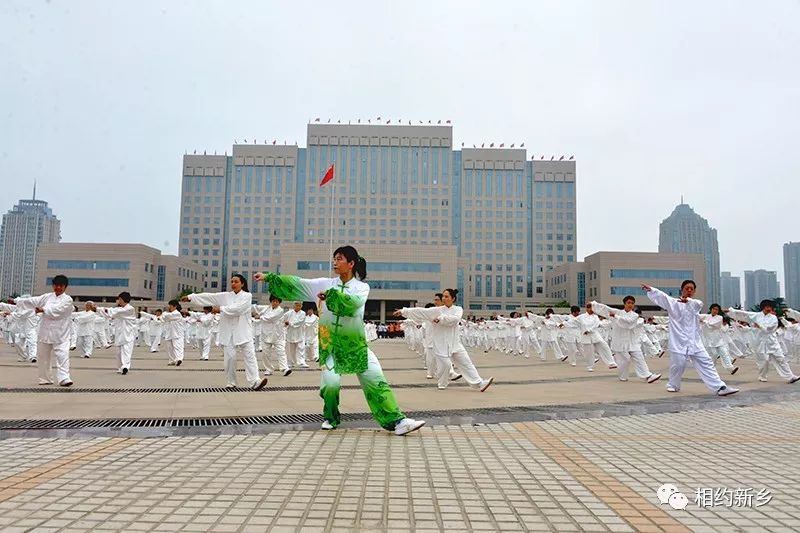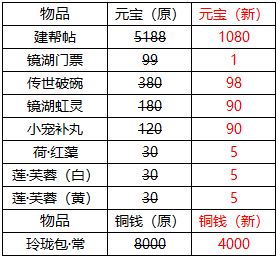“新婚姻法的艰难解释”
2。产妇财产关系
夫妻财产系统是什么?
丈夫妻子财产系统是一个法律制度,涉及结婚前后的丈夫财产的所有权,管理和处置以及偿还债务,终止婚姻时的财产清算等等等。夫妻财产系统被分为商定的财产系统和法定财产系统。法定财产系统是指丈夫和妻子财产系统,该系统自然适用于丈夫和妻子未能在结婚或结婚后或协议后就夫妻的财产达成协议时,无效。商定的财产制度是指婚姻当事方选择以约定的方式决定夫妻财产系统的形式的系统。
根据夫妻财产系统的内容和特征,夫妻财产系统也可以分为统一的财产系统,联合财产系统,独立的财产系统和联合财产系统等。
统一的财产系统意味着妻子将统一享受婚前财产的财产权,而妻子只保留要求退货的权利。终止婚姻后,丈夫应将妻子的婚前财产或其折扣金额归还给妻子或他的继承人。
共同的财产系统是指以下事实:除了独特的财产,夫妻的财产的全部或部分属于双方,并且在终止婚姻关系时被分裂。
单独的财产制度意味着,婚前和结婚后的配偶获得的财产仍然彼此拥有,并且每个行使管理权,获得和处置权的权利。还没有排除,双方双方都以合同的形式将其财产的管理权移交给另一方。
联合财产系统意味着丈夫和妻子各自享有自己财产的所有权,但双方的财产均由丈夫团结起来。当丈夫和妻子之间的关系被解雇时,妻子的原始财产将由她的继承人夺回或继承。
婚后收入的联合制度是什么?
我国的法定财产系统是结婚后的共同收入制度,通常称为夫妻的共同财产系统。它指的是一种财产系统,在该财产系统中,除非配偶的独家财产和协议,否则配偶的独家财产和协议均由配偶共同拥有,而配偶则享有拥有,使用,利用和处置由配偶共同拥有的财产的平等权利。
一对夫妇共同拥有的财产是什么?
夫妻的共同财产是指婚姻期间配偶或配偶之一所获得的财产,除了两党之间的独家财产以及其他协议。
夫妻的共同财产具有以下特征:

首先,丈夫和妻子共同财产所有权的主题只能是与婚姻关系的夫妻。无效的婚姻,非法同居或通奸的男人和女人不能成为他们的臣民。
其次,这对夫妇共同财产所有权的时间是结婚时期。 That is, if a legal marriage is from the date of obtaining the marriage certificate (before the implementation of the Marriage Registration and Management Regulations on February 1, 1994, a man and a woman who have not completed marriage registration and live together in the name of a husband and wife, and is determined to be a de facto marriage, from the date of cohabitation), to the time when one spouse dies or divorce takes effect.爱或订婚时期不是婚姻关系。夫妻分居或离婚判决无效的时期仍然是婚姻时期。
第三,夫妻的共同财产的来源包括双方或一个一方获得的财产,除非双方之间的专属财产和其他协议。所谓的“收购”是指收购财产所有权,而不是实际拥有财产。如果结婚前已经获得了某个财产的所有权(如果已经开始),即使财产在结婚后实际拥有(如果继承在结婚后分裂),则该财产仍然不是夫妻的共同财产。相反,如果结婚后获得财产权,即使婚姻终止之前实际上没有婚姻,财产也是夫妻的共同财产。
如果以上三个特征同时拥有,则它们是夫妻的共同特性。
这对夫妇共同拥有的财产是什么?
根据《婚姻法》的规定,在我国实施的夫妻的法律财产系统包括婚后收入的制度,即在婚姻关系期间,除非另有同意,否则每一方的特定收入和与该收入购买的财产应属于这对夫妇。所谓的婚姻关系期是指获得结婚证书建立婚姻关系的时间,直到一个配偶死亡或离婚为止。婚姻关系仍然是夫妻分离期间或离婚判决期间尚未生效的时期。当获得所有权的时间与实际获取财产的时间不一致时,应将获得所有权的时间用作区分婚前财产和婚姻后财产的边界。
根据婚姻法的规定,夫妻在我国的共同财产范围包括以下方面:
1。薪水,奖金。工资和奖金是公民在企业,机构,机构,团体,学校等中从事身体或精神劳动的收入。
2。生产和运营中的利润。 The income from production and operation is the physical or financial income obtained by citizens to engage in production and operation activities within the scope permitted by law, such as the income obtained by citizens to engage in labor services such as contracting, storage, transportation, intermediary, design, installation, drawing, technical services, consultation, legal services, medical care, lectures, copying documents, tutoring, translation, tour guides, performances, photography, housework, etc.
3。从知识产权获得的利润。知识产权的收入是指公民转移或许可他人使用自己的版权,专利,商标专有权利和发明权利的收入。
4。继承或捐赠的财产应排除在《婚姻法》第3款第18条之外。
5。其他应该共同拥有的财产。
员工购买的工作经验可以用作夫妻的共同财产吗?
目前,在我国某些地区,已经有一种员工的现象(也称为卖光)。这种做法没有国家政策和法律依据,情况不一致,这尚待讨论。在某些领域,员工购买服务寿命意味着尚未退休年龄的员工提早退休;该公司为员工的未来生活支付一笔钱,未来发生的任何事情与公司无关。它类似于养老金保险,这是未来几年生活的保证。购买工作经验与特定人员密切相关,并且是个人财产。关于员工购买服务寿命付款是否可以用作夫妻的共同财产,我们认为,员工购买服务寿命付款应用作个人财产,并且不应用作共同财产来偿还债务,也不应将其作为联合财产分配。
如何行使夫妻的财产权?

夫妻对他们共同财产的权利和义务是平等的。夫妻拥有共同财产的同等所有权。分享了夫妻的共同财产的性质。夫妻享有权利,并同样承担义务,而无需分享所有共同财产的份额。因此,不能根据夫妻共享财产的存在或所有权确定。丈夫和妻子都有平等的权利拥有,使用,获取和处置共同财产。处置权的权利是所有权上最重要的权力,也是所有权的最高表现。我国家的婚姻法第17条特别规定:“众议院和妻子有共同拥有财产的权利。” “对最高人民法院对中国人民共和国婚姻法的适用(i)进行的几个问题的解释”(2001年12月27日实施)的第17条规定,应对应对处理丈夫和妻子的共同财产的权利平等。如果由于日常生活需求而处理一对夫妇的联合财产,则任何一方都有决定。 (2)丈夫或妻子就夫妻的共同财产做出重要决定,而无需日常生活。丈夫和妻子都应平等地谈判并达成共识。如果其他人有理由相信他们是由夫妻的共同意图所表达的,那么另一方不得以分歧或不知道的理由与真正的第三方作斗争。可以从中可以看出,应协商并同意处理夫妻处理公共财产的决定。如果一个配偶正在处置共享财产,而另一个配偶知道这种行为,但不否认行为,则应被视为同意,并且不得否认纪律处分的法律后果,因为他没有亲自参加纪律处分。如果丈夫和妻子处置共享财产,而其他人则有理由相信这是夫妻的普遍意图,那么另一方不得以分歧或不知道的理由与真正的第三方作战。
夫妻享有共同财产平等的权利,并承担同等的义务。夫妻的共同财产应承担共同生活的成本。如果联合财产不足以承受,这对夫妇将与他们的个人财产分担负担。如果丈夫和妻子因共同生活或履行支持和支持的义务而产生的债务,如果夫妻债务,则应与丈夫和妻子的共同财产还清夫妻,夫妻都应承担共同的责任,并承担几项责任。
哪个财产是一个配偶独有的?
根据《婚姻法》,如果发生以下情况之一,那就是其中一位配偶的财产:
(1)一方的婚前财产
根据《财产法》中所有权的原则,一位配偶在结婚前获得的财产应为个人财产。如果获得财产的权利发生在结婚前,并且对财产的实际收购也是婚前财产,即新夫妇的个人财产。
值得注意的是,在“对离婚案件的审判中,关于人民法院处理财产部门处理财产部门的几项具体意见”在婚后共同使用,婚后双方共同使用,由双方共同运营,经营和管理的一方财产。房屋和其他高价值和其他高价值的生产手段,有价值的生活材料可以将其视为丈夫和夫妻的共同财产。这项规定非常有争议。首先,该规定创建了一个获得财产权的系统,但是我国家当前的民法没有获得财产权的系统,因此该规定没有立法依据。其次,该规定不能区分原始财产和财产附件。结婚前一位配偶的个人财产不包括两位配偶的财产投资和劳动投资。如果结婚后配偶共享的财产,则与财产法律制度的规则相反。第三,这项规定不利于建立通过劳动创造财富的正确概念的人们。如果不正确地应用它,它将鼓励某些政党繁殖到一无所获的想法。因此,应特别规定,应特别规定,一个配偶的婚前财产是一个配偶的独特财产,由于配偶之间存在关系而不会改变。当然,如果双方之间还有其他协议,这将不适用。
在实施《婚姻法修正案》(2001年4月28日)之后,对最高人民法院的司法解释中的上述规定将失去效力。
(ii)医疗费用,生活津贴和其他因身体伤害而获得的费用,等等。
一方专门用于一对夫妇的治疗费用的残疾人的医疗费用和生活津贴,应该是这对夫妇的财产。
值得注意的是,如果先支付医疗费用,以后再赔偿医疗费用,并且夫妻共享的财产支付了医疗费用的提前支出,则预付款部分应在获得医疗费用后扣除。
(iii)确定遗嘱或礼品合同的财产仅属于丈夫或妻子之一。
根据我国“继承法”的规定,继承分为两种方式:法定继承和遗产继承。遗嘱继承是指一种继承方法,该方法决定了继承人并根据遗嘱人在他的一生前的意志来处理遗产。在遗嘱继承中,遗产的继承人和继承遗产的金额清楚地由死者遗嘱中的死者指定。国家建立了一个遗嘱继承系统,以使公民能够完全行使其个人财产的所有权,根据自己的意愿处置其继承权,并选择自己的忠实可靠的继承继承人。如果婚姻关系受到一位配偶以意志继承的形式获得的财产的继承,则作为配偶的共同财产,规定它是由两位配偶共同拥有的,这本质上是意志内容的改变,这与公民法律和遗嘱继承的一般原则的所有权制度相反,这是相反的。它不仅违反了遗嘱人的意愿,而且是对遗嘱人在自己财产上处置权的权利的不合理限制。遗产也是如此。因此,婚姻法的修正案规定,确定的财产仅属于一个夫妻或妻子是夫妻的财产。 However, this provision seems to be not thorough enough, because in statutory inheritance, the scope, order, and principles of estate distribution of legal heirs are formulated by the legislator based on the will that the deceased may have in general, and regards the property obtained by one party in accordance with the law during the marriage as the joint property of the couple, which in disguise expanded the scope of the heirs, which violated the will of the deceased, which was obviously不合适。
一个配偶收到的财产包括收件人获得的财产,从他人那里收到礼物或接受他人的遗赠。礼物是一份合同,礼品合同是一方(捐助者)自愿将其所有财产免费交给另一方(捐赠者)的协议,而另一方(捐助者)也表示接受。根据最高人民法院的相关司法解释的规定,在婚姻期间,一位配偶收到礼物,包括从遗产获得的财产,属于配偶的共同财产。根据礼物的法律特征(包括遗赠),可以看出,在捐赠的民事法律关系中,捐助者和捐助者都可以肯定且不可替代。捐助者将自己的财产交给捐助者的原因是由捐助者的主观意愿决定的。捐赠者只向捐助者而不是其他人(包括捐赠者的配偶)捐赠了财产,这是捐赠者行使其所有财产所有权的一种表达形式,并且是合法的。如果将一个配偶获得的财产视为配偶共有的财产,则实际上是对捐赠者处置捐赠者自己财产的权利的限制或否定(部分否定也是否定),这与捐赠者的意愿相反。这种捐助者处置捐赠者权利的这种限制或否认没有理论基础,也与民法对财产所有权的相关规定不一致,因此这是不合适的。该项目清楚地规定,在礼品合同中确定的财产仅属于配偶之一是配偶的财产,这是值得批准的。
(4)一个聚会的每日必需品
一个政党使用的每日必需品具有严格的个人性质,应该是这对夫妇的财产。在司法实践中,它一直被视为这对夫妇的个人财产。对婚姻法的这种修订只是对司法实践的进一步确认。
(v)其他应属于同一政党的财产
这是一项相对灵活的规定,因此婚姻法可以更好地适应不断变化的情况。
丈夫和妻子同意的财产系统是什么?
夫妻的财产制度是就所有权,管理,使用,收入,处置和偿还债务的所有权,婚姻终止时的财产清算的协议,不包括适用于丈夫和妻子的法定共同财产系统的系统。
1980年的《婚姻法》适应了在新时代调整夫妻之间财产关系的需求。在指出法定财产制度是夫妻的联合财产系统时,它还规定允许夫妻自愿安排财产关系,以排除联合财产系统的应用。我国家的婚姻法允许夫妻按照双方的意愿处理双方之间的财产关系,这可以满足夫妻的需求,以各种原因(例如个人签约和管理,夫妻再婚,与外国相关的婚姻和婚姻的婚姻,涉及Hong sipal of Forteraly of Forteraly cool and cou)等各种形式的婚姻问题(例如,个人合同和管理),该婚姻和婚姻享受,享受了thatie and thate and thatia and thatai and thataiwai and thataiwai and thataiwaiwri and thataiwaiwri and thataiwaiwried cou)有利于减少家庭纠纷,保护当事方的合法权利和利益,并促进家庭经济和社会经济的发展。该婚姻法已就商定财产制定了更具体的规定。 《法律》第19条规定:“丈夫和妻子可以同意,在婚姻和婚前财产期间获得的财产应属于每个人,共同拥有或部分拥有或部分拥有或部分拥有。协议应以书面形式为书面形式。如果没有协议或协议不清楚,则应在本法律和妻子之间签订的财产。当事方。
何时应就财产范围签订夫妻之间的财产协议?
婚姻法没有限制夫妻的财产关系所商定的时间。夫妻可以在结婚时或结婚期间达成协议。该协议的范围仅限于夫妻的财产,包括婚后和财产后的财产。可以同意丈夫和妻子的所有财产,或者是夫妻的财产的一部分;可以就财产的所有权或行使使用,管理,收入和处置权或家庭生活费用的负担,债务还款责任,清算和财产分配的财产的所有权达成一致。
在什么情况下,夫妻之间就财产关系的协议有效?
夫妻之间在财产上的协议是双方之间的一项民事行为,只有在达到民事法律行为的组成要素时,它才会产生法律效力。根据《民法一般原则》第55条,法律协议应符合以下条件:
1。一方必须以完全的民事能力来签订婚姻,不得代表他人行事。
2。协议必须是自愿的,意图意味着真理。欺诈,胁迫或利用另一方违反其真实愿望的情况无效的情况。
3。商定的内容必须是合法的,并且不会违反社会的公共利益。商定财产制度的主题可以是夫妻共同获得的财产,也可以是婚前或结婚后一方获得的财产。商定的内容包括财产的所有权,管理,使用,收入和财产的处置,家庭生活费用的负担,偿还债务的责任,终止婚姻关系的清算和财产的清算和财产分配等。协议的内容不得超过双方的范围,不得超过双方的范围,不得损害义务的权利,义务和儿童的义务和义务,义务和义务责任,责任,养老金,养老金,养老金,养老金,养老金,养老金,养老金和责任,集体或第三方。
丈夫财产协议应采取哪种形式?
《婚姻法》第19条规定:“协议应以书面形式。”可以看出,关于丈夫和妻子财产的协议应以书面形式避免纠纷。如果双方都承认,则应确认口头协议的有效性,或者有可靠的证据证明。

如何将夫妻之间关于财产协议的协议进行公证?
夫妻有两种类型的财产协议:婚前财产协议和婚后财产协议。一般而言,婚前财产协议在男人和妇女的婚姻登记之前就各个项目,存款,债务等都划分并达成协议。婚后财产协议划分并同意婚姻登记后的丈夫和妻子的权利和义务,并执行其各自的收入,支出,债权人的权利,债务,礼物,继承和其他相关权利。尽管夫妻之间就财产协议达成的协议不需要公证,但夫妻之间关于财产协议协议的公证不仅可以更清楚地划分丈夫和妻子的财产和债务,而且可以对外部产生强大的法律影响。有两种类型的公证:一种是公证婚前财产协议,另一种是公证婚后财产协议。两者都可以在结婚前或结婚后处理。申请公证时,必须提交财产协议。协议应在以下问题中说明:基本信息,例如姓名,性别,职业,当事方的地址;现有财产和债务的名称,数量,类型,价值,状态;现有财产和债务的所有权(财产的所有权和夫妻关系期间获得的债务的所有权);其他协议,例如偿还联合债务等。带来的相关支持文件包括财产证明,已婚夫妇的结婚证,
公证证书的有效性不是绝对的,也就是说,一旦签发,任何公证证书都必须具有上述效果。
我国家的民事诉讼法具有以下规定:“人民法院应作为确定法律诉讼,法律事项和法律程序证明的法律事项和文件后确定事实的基础,除非有足够的证据可以推翻公证证书。”最高人民法院的相关规定是:“如果夫妻同意谁拥有该财产或以口头形式达成共识,并且当事方没有争议,则离婚应根据协议处理,但法律无效。”这两项规定表明,如果夫妻达成协议,以逃避法律规定的义务,例如债务,支持和支持应承担的义务,即使该协议被公开了,该协议也无效。
夫妻财产协议有什么影响?
夫妻财产协议的有效性是指丈夫和妻子就财产关系达成协议后对双方和第三方的法律约束力。商定的效果可以分为内部(指夫妻)和外部(指第三方)。
夫妻之间的财产协议对丈夫和妻子都具有法律影响,这相当于在丈夫和妻子之间建立有关财产管理,使用和处置的原则边界。有了它,如果丈夫从妻子那里借钱而不偿还钱,妻子有权使用贷款票据和财产协议起诉人民法院,要求丈夫退还贷款。当然,这种情况只有在夫妻之间的关系分解与财产划分之间的关系才会发生。
根据《婚姻法》第19条第19款和第3款,夫妻在婚姻期间获得的财产和婚前财产的协议对双方都具有约束力。如果丈夫和妻子同意婚姻期间获得的财产彼此属于彼此,则如果丈夫或妻子对外界负债,并且第三方知道该协议,则丈夫或妻子拥有的财产应还清。从中可以看出,这对夫妇就财产达成协议是不正确的
对第三方有效。根据合同法律和财产法的一般原则,夫妻在财产上的协议与双方的意图结合在一起。通过协议安排丈夫和妻子的未来划分,这当然对丈夫和妻子都有约束力。因此,《婚姻法》第2款第19条规定:“夫妻在婚姻期间获得的财产和婚前财产的协议对双方都有约束力。”但是,当它涉及第三方的利益时,由于未公开关于夫妻财产的协议,因此没有利益与第三方作战。根据民法公平的原则,为了保护第三方的利益并维持交易安全,第三方必须知道夫妻财产的协议,以便对第三方生效和法律约束力。因此,第19条,《婚姻法》第3款规定:“如果夫妻同意,如果婚姻期间获得的财产彼此属于彼此,则如果丈夫或妻子被外部发生,如果第三方知道该协议,则应支付夫妻所拥有的财产。”也就是说,如果第三方不知道该协议,则应先支付夫妻拥有的财产,并且不足的部分应与夫妻所拥有的财产以及另一方的个人财产支付。
在什么情况下,丈夫和妻子同意的财产系统申请?
我的国家实施了将法定财产系统和商定财产系统结合的丈夫财产系统。法定财产系统与商定财产制度之间的申请原则是“如果达成协议,则协议,如果达成协议,则无协议将遵守法定。”换句话说,如果夫妻之间达成协议,则应根据协议对其进行处理;如果没有协议或协议无效,并且该协议尚不清楚,则应适用法定财产制度。也就是说,商定的财产系统可以排除法定财产系统的优先申请,而前者的效果比后者的优先应用。
《婚姻法》第19条规定:“如果没有协议或协议尚不清楚,则该法律第17条和第18条的规定应适用。”
What is support?
Support in a broad sense refers to the legal rights and obligations of mutual support and assistance between relatives within a certain range. It has no distinction between identity and generation, and is a general term for support, support and support, that is, it includes the support of elders' relatives to younger relatives, the support of younger relatives to older relatives, and the support of peer relatives. The term "maintenance" and "criminal law" in my country uses the term "maintenance" in a broad sense. Support in a narrow sense only refers to the legal rights and obligations of mutual support and assistance between husband and wife and peer relatives such as brothers and sisters. The legislation of my country's Marriage Law is in a narrow sense.
The support between husband and wife stipulated in my country's Marriage Law specifically refers to the legal rights and obligations of husband and wife to support each other and help each other.
The support relationship between relatives within a certain scope stipulated in my country's Marriage Law is a legal relationship of civil rights and obligations. Like other civil legal relations, it consists of three elements: subject, content and object:
First, the subject of the foster relationship is the person who enjoys rights and assumes obligations in the foster legal relationship according to the Marriage Law. The subjects of the support relationship can be divided into two types: one is the person who enjoys the support rights, who is called the support rights holder; the other is the person who bears the support obligation, who is called the support rights holder.
Second, the content of the support relationship refers to the rights and obligations enjoyed by the support subject. That is, the right to support and the right to support the right to support the right to support the right to support the right to support the right to support the right to support the right to support the right to support the right to support the right to support the right to support the right to support the right to support the right to support the right to support the right to support the right to support the right to support the right to support the right to support the right to support the right to support the right to support the right to support the right to support the right to support the right to support the right to support the right to In other words, the content of the support relationship includes two aspects: the right to support and the obligation to support. The former is the right to support the right holder; the latter is the obligation assumed by the support obligor.
Third, the object of the support relationship is the object jointly directed by the rights and obligations of the support relationship subject, including the act of the support right holder accepting support and exercising the right to request support, and the act of the support obligor performing support obligations. Under normal circumstances, the obligation to support is consciously fulfilled by the obligor. Only when the support obligor fails to perform the obligation, the right holder who needs to support exercises the right to request support and requires the obligor to fulfill the statutory support obligation.
What are the obligations for supporting a couple?
Article 20 of my country's Marriage Law stipulates: "House and wife have the obligation to support each other. When one party fails to fulfill the obligation to support, the party that needs to support has the right to ask the other party to pay the support." The obligation to support between husband and wife is based on the effectiveness of the marriage between husband and wife. The obligation to support husband and wife is the obligation to support each other in financial terms and life, and is the obligation to protect life. The purpose is to ensure the life of the couple together, which is an inevitable requirement for marriage. In general, this support obligation is achieved in the life of the couple. The mutual support between husband and wife is both an obligation and a right. Couples have the obligation to support each other, and at the same time, they also have the right to require each other to support each other.
The obligation of husband and wife to support each other is a legal obligation and is legally mandatory. When one spouse has no fixed income and lacks a source of living, or has no ability to live independently or has difficulty living, or needs support due to illness, old age, etc., and the other party fails to fulfill the support obligation, the party that needs support has the right to require the other party to bear the support responsibility. If a dispute arises between the husband and wife due to support issues, they can be mediated by the relevant departments or filed a lawsuit directly with the people's court. When hearing a support dispute case, the people's court may first conduct mediation. If the mediation is invalid, the people's court shall make a timely judgment in accordance with the law and force the obligor to fulfill the support obligation. If the obligor refuses to fulfill his obligation to support and the circumstances are bad, he shall be held criminally responsible in accordance with the relevant provisions of the Criminal Law.
What is the right to inherit the inheritance between husband and wife?
Article 24, Paragraph 1 of the Marriage Law of my country clearly stipulates: "House and wife have the right to inherit each other's inheritance"; "Inheritance Law" is a legal norm that specifically adjusts the inheritance relationship, and provides a comprehensive and specific reflection on the actual operation of spouse's inheritance rights; "Women's Rights Protection Law" focuses on the reality that women's inheritance rights are vulnerable to infringement, and emphasizes that "the right of inheritance of property equal to men enjoyed by women is protected by law. Among the legal heirs in the same order, women shall not be discriminated against." From this, we can see that the following points should be grasped in the understanding and application of the inheritance rights between husband and wife:
1. The legal existence of a marriage relationship, that is, the actual existence of the identity of a husband and wife, is a prerequisite for the mutual enjoyment of inheritance between husband and wife. Only after the marriage relationship is effectively concluded in accordance with the law and before the legal and effective termination, if one spouse dies, the other party will enjoy the right of inheritance.
2. The husband and wife are the first-order heirs and enjoy the same right of inheritance. Except for the circumstances in which the right of inheritance is lost and the restriction of the share of the inheritance stipulated in the Inheritance Law, no person shall deprive, interfere or hinder the enjoyment and exercise of the right of inheritance by the surviving spouse.
3. The inheritance rights of husband and wife cannot be confused with the division of husband and wife's joint property. my country uses the joint property system of husband and wife as the statutory property system. All property obtained during the marriage is common property. Therefore, when one spouse dies, most of the current property status is shared by the couple during their lifetime, not all of which are personal inheritance. To this end, it is necessary to identify and divide the shared property of the couple to protect the shared property rights of the surviving party, and at the same time determine the value and scope of the personal inheritance of the deceased, and identify and protect the inheritance rights of the surviving spouse and other heirs in the same order.
4. The inheritance rights of husband and wife are not affected by the length of marriage, nor are they hindered by whether the surviving party remarries. In practice, we must pay attention to preventing and preventing interference in "widows remarrying with birth" or "son-in-law remarrying with birth" and other phenomena that infringe on the inheritance rights of couples.
版权声明:本文内容由互联网用户自发贡献,该文观点仅代表作者本人。本站仅提供信息存储空间服务,不拥有所有权,不承担相关法律责任。如发现本站有涉嫌抄袭侵权/违法违规的内容, 请联系本站,一经查实,本站将立刻删除。如若转载,请注明出处:https://www.bjkytsjk.com/html/tiyuwenda/23340.html






